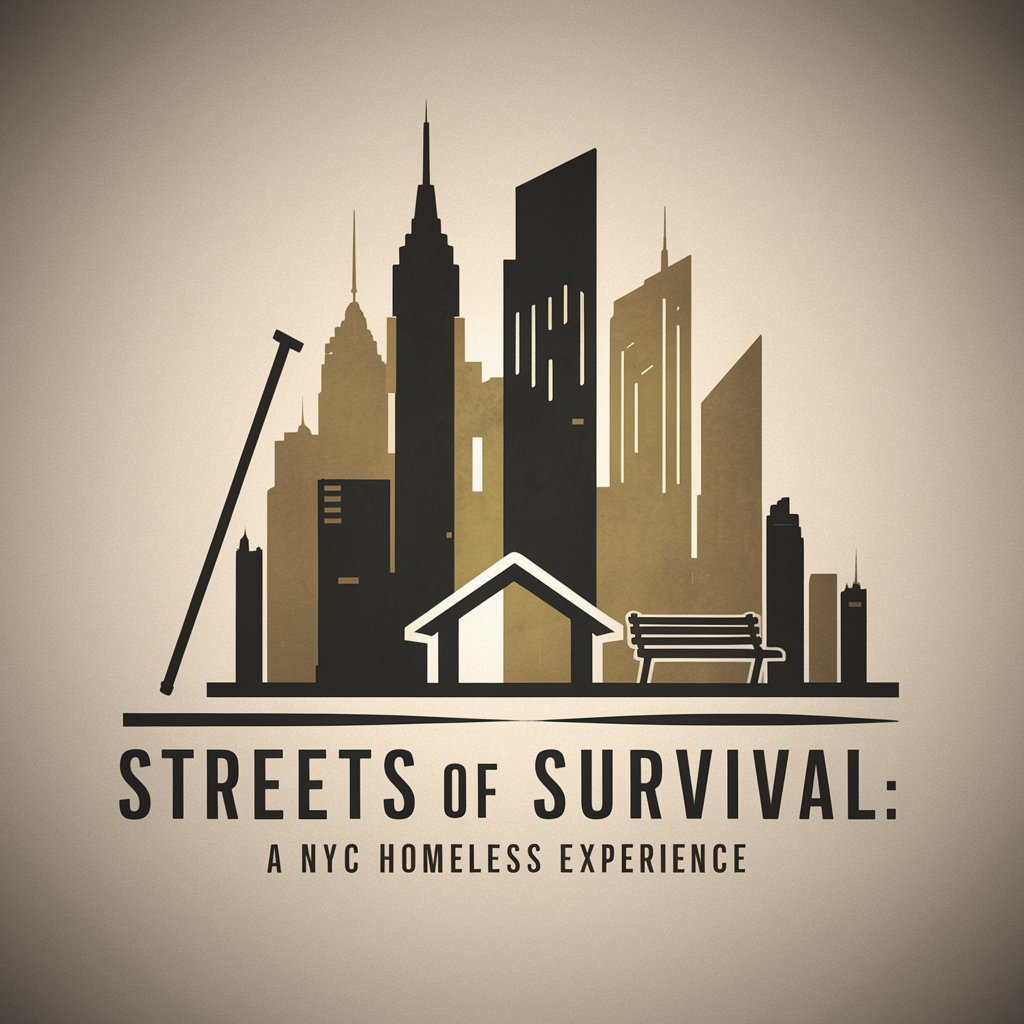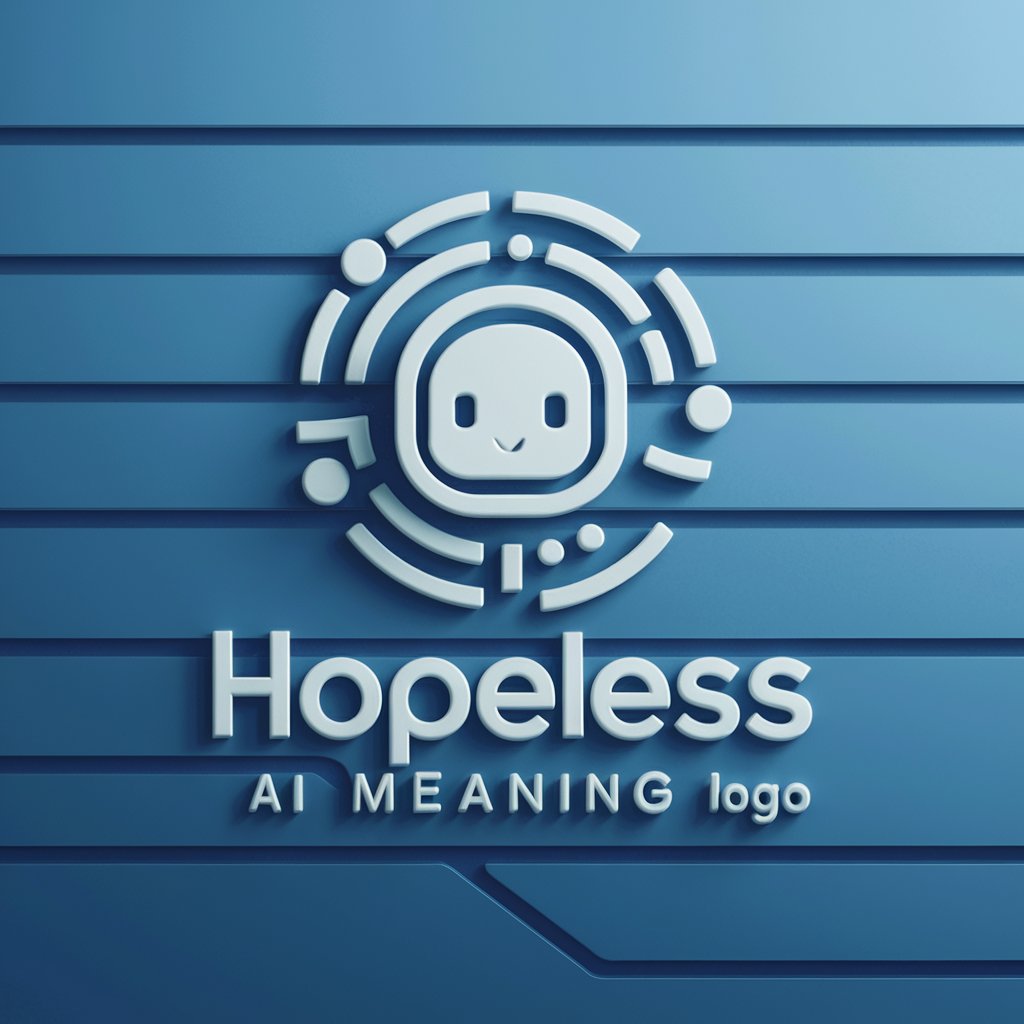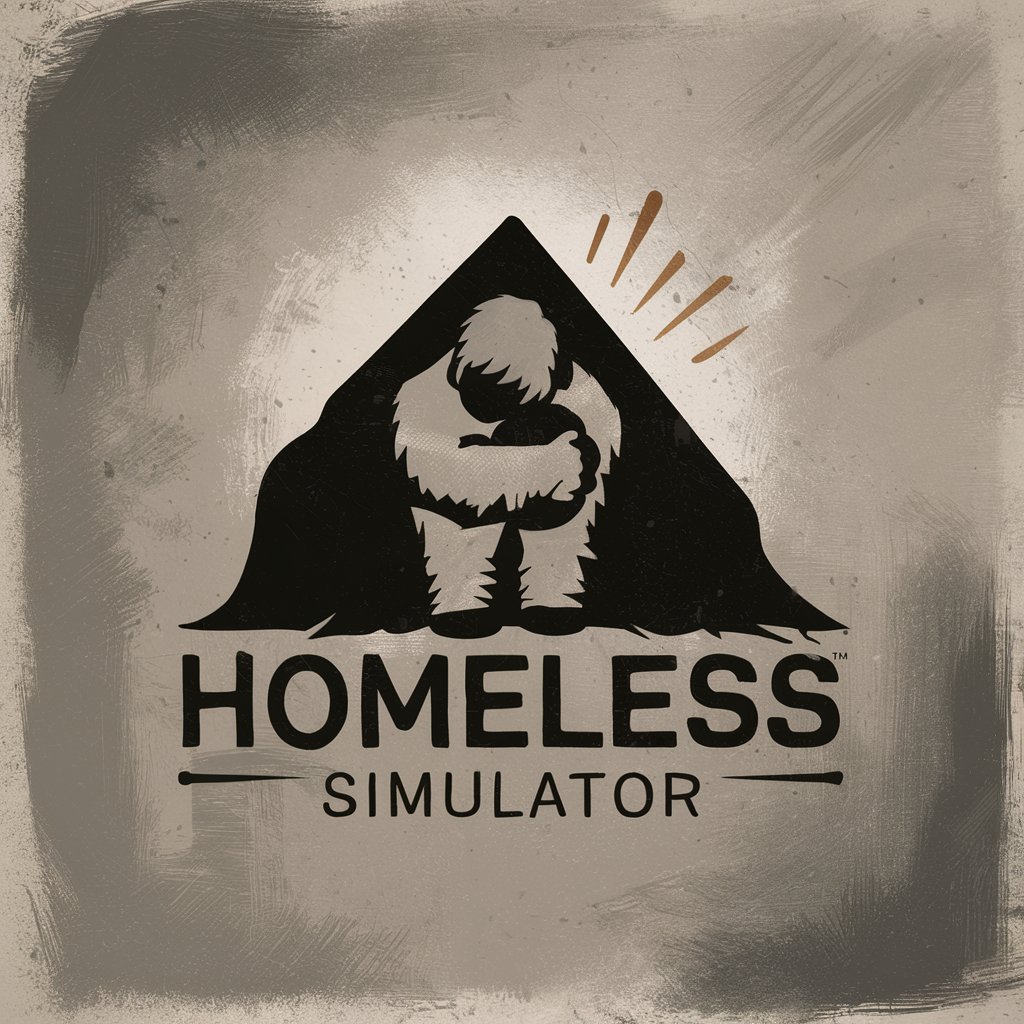
Streets of Survival: A NYC Homeless Experience v1 - Interactive Homelessness Sim

Welcome to 'Streets of Survival: A NYC Homeless Experience'. Ready to start your journey?
Experience and understand homelessness through AI-powered narrative gaming.
Imagine you're a retired teacher who lost everything due to rising medical costs. How would you...
You wake up on a cold November morning in New York City with only $40 and a walking stick. What will you...
After a rough night on the streets, you're feeling anxious and overwhelmed. Your first priority today is...
As a new face on the streets, you need to find a safe place to spend the day. How do you...
Get Embed Code
Introduction to Streets of Survival: A NYC Homeless Experience v1
Streets of Survival: A NYC Homeless Experience v1 is an interactive, narrative-driven game designed to immerse players in the realities of homelessness in New York City. The game combines character backgrounds with unique challenges, such as language barriers, disabilities, and addiction, to simulate the diverse experiences of those living on the streets. Players navigate daily challenges related to food, shelter, warmth, and health, while managing resources like money and clothing. The game employs a turn-based system where each turn represents a day, and players' decisions impact their character's health and story progression. Random events add unpredictability, reflecting the uncertainty of life without stable housing. The game's educational purpose is to foster empathy and understanding of homelessness, incorporating real-life stories and informational segments on its causes and ways to assist. Powered by ChatGPT-4o。

Main Functions of Streets of Survival
Dynamic Health Status
Example
Health is narratively described, evolving with the player's choices, such as worsening from neglecting a wound or improving with proper care.
Scenario
Albert, the retired school teacher, might notice his health declining if he fails to manage his blood pressure medication or improve if he finds consistent food sources.
Resource Management
Example
Players must carefully manage their finite resources, like money, to meet their basic needs, facing tough choices about spending on food, medication, or shelter.
Scenario
With only $40 to his name, Albert must decide whether to spend on a night at a shelter, food, or saving for his medication refill.
Random Events and Challenges
Example
Unpredictable events, such as encountering law enforcement or finding an unexpected aid resource, mirror the instability of homelessness.
Scenario
Albert may randomly encounter a community outreach program offering temporary shelter and food assistance, or face a police inquiry while trying to sleep in the park.
Educational Segments
Example
Incorporates educational content about the systemic causes of homelessness and resources available to those affected, aiming to inform players and dispel stereotypes.
Scenario
After completing a day, players might receive information about the importance of community support programs and how they can contribute to or advocate for solutions to homelessness.
Ideal Users of Streets of Survival
Educators and Students
Educators can use the game as a tool in social studies or health education classes to teach students about social issues, empathy, and civic responsibility. Students gain a deeper understanding of homelessness through interactive learning.
Social Workers and Advocates
Professionals and volunteers working with homeless populations can use the game for training purposes, to better understand the challenges their clients face, and to develop empathy and effective intervention strategies.
General Public
Individuals seeking to understand the complexities of homelessness beyond stereotypes and headlines. The game offers insight into the daily realities of those living on the streets, encouraging empathy and informed discussion.

How to Use Streets of Survival: A NYC Homeless Experience v1
Start Free Trial
Begin by visiting yeschat.ai for a complimentary trial, accessible without signing up or needing a ChatGPT Plus subscription.
Select a Character
Choose from a range of characters with diverse backgrounds, each facing unique challenges such as language barriers, disabilities, or addiction.
Navigate Daily Challenges
Engage in decision-making to overcome daily challenges related to food, shelter, and safety, while managing your character’s health and resources.
Experience Random Events
Encounter random events that add unpredictability to the game, requiring strategic adjustments to your actions and plans.
Aim for Positive Outcomes
Navigate the game towards various endgame scenarios, including finding stable housing or employment, while learning about homelessness and fostering empathy.
Try other advanced and practical GPTs
web Scraping homeless bum (looking for cash
Simplifying Web Scraping with AI

Hopeless meaning?
Insight at Your Command, Powered by AI

Hello Again
Simplifying AI interaction with sequential greetings.

Begin Again
Transforming habits with AI-driven support

Rise Again AI
Empowering your journey to emotional resurgence.

All Over Again meaning?
Revolutionize your tasks with AI

Homelessness UK
Empowering with AI-driven homelessness support

Hopeless But Still Romantic
Unleash your creativity with AI-powered poetic guidance.

Homeless Academic
Empowering scholarly pursuits with AI-driven insights.

混沌模型助手
Empowering innovation with AI-driven insights

번역
Unlock idiomatic nuances with AI-powered translations.

Aussie Leave Calculator
AI-Powered Leave Entitlement Tool

FAQs about Streets of Survival: A NYC Homeless Experience v1
What makes Streets of Survival unique?
Streets of Survival is unique for its realistic simulation of homelessness in NYC, combining character-driven narratives, dynamic health statuses, and the management of daily challenges and resources. It emphasizes educational purposes, aiming to foster empathy and understanding.
Can I choose different characters?
Yes, the game offers a selection of characters, each with their own backstory and set of challenges, such as addiction, language barriers, or disabilities. This allows for varied game experiences and insights into different aspects of homelessness.
How are health and resources managed?
Health and resources are managed through narrative descriptions and decision-making. Players must strategically allocate time and resources to manage food, money, and health, with their choices directly affecting the character's situation.
What role do random events play?
Random events introduce an element of unpredictability, simulating the uncertainty of life on the streets. These events can have positive or negative outcomes, influencing the game’s difficulty and the strategies players employ.
How does the game conclude?
The game can conclude in various ways depending on the player's decisions and the character’s journey. Positive outcomes include finding stable housing or employment, but players must navigate the challenges and consequences of their choices to reach these endings.





